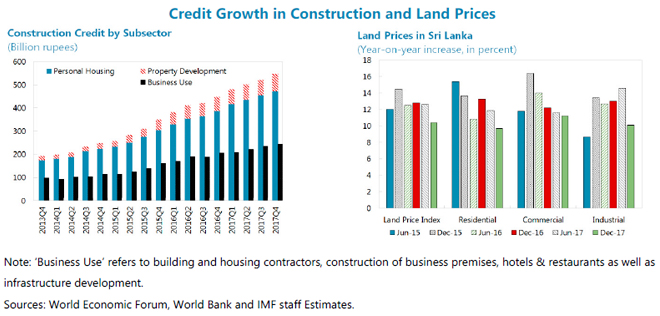
“Apartment sales slowing due to relatively lesser cash flows for these investments” HNB CEO
Mar 27, 2019 (LBO) - Successful real estate sector outcomes will be dependent upon sound strategy that puts into place foreign investment for new projects, a senior banker said.
"If the necessary national development does takes place and if foreign investment and new projects take off and GDP grows to the expected levels, I think we will be able to fill up some of these apartments very easily," Jonathan Alles, Hatton National Bank, managing director/chief executive told reporters in Colombo, recently.
"What is key is for economic development to take place and why you are seeing a slight slow-down in sales in apartments, is probably due to relatively lesser cash flows being available for these investments."
In general he says there has been a slight reduction in the pace of Sri Lanka’s growth.
"By no means do we think that 3 percent GDP growth is adequate,"
"There are of course those who are concerned of the new buildings coming up in this current growth enviorenment, but I believe that over the long term, if Sri Lanka’s growth can truly recover, then there is a clear benefit to having all of this infrastructure in place over the long term."
Speaking on the Bank's exposure to real-estate lending he said they have been cautious.
"We have been dealing with only our most respected customers in property development, and we have tended to avoid newer, less-established players," Alles said.
"So overall I would say that we have exercised a great deal of caution in this sector and at this moment, we are comfortable with that exposure."
However, he says the bank has not taken on any significant new exposure at this stage and at present, we do not have any property development transactions that have moved into non performing assets (NPA).
"Similarly, where we have signed tri-partite agreements for housing loans for some of these apartments, there too we have no instances where they have gone into NPA, because we tend to have reasonable loan to value (LTV) on housing loans."
Data shows that currently, the real estate market makes up of 11.2 percent of total outstanding loans.
The IMF last year highlighted in a report that if rapid construction leads to an oversupply in the real estate market, lower prices and a slowdown in construction activity would likely follow and trigger stress among the often-leveraged builders.


